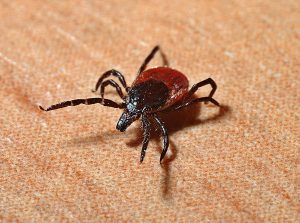Tick-borne encephalitis (TBE) virus is spread through the bite of an infected tick. Occasionally, TBE virus can spread to people through eating or drinking raw milk or cheese from infected goats, sheep, or cows. People who spend time outdoors in or near forests are at highest risk of being bitten by a tick infected with TBE virus. Ticks that spread TBE virus live in or near forests in parts of Europe and Asia. The best way to prevent TBE is to protect yourself from tick bites. To avoid getting TBE from infected dairy products, avoid eating or drinking unpasteurized (raw) milk and cheese from goats, sheep, or cows in affected areas.
TBE virus transmission occurs primarily during the warmer months from April through November when ticks are most active. Ticks are typically found in woodland habitats including in deciduous and coniferous forests and in the transition zone between forests and grasslands.

Many people infected with tick-borne encephalitis (TBE) virus do not have symptoms. For people with symptoms, the time from tick bite to feeling sick is usually about 7 to 14 days, but can range from about 4 to 28 days. Initial symptoms can include fever, headache, vomiting, and weakness.A few days later, severe symptoms can develop including confusion, loss of coordination, difficulty speaking, weakness of the arms or legs, and seizures.Sometimes initial symptoms last a few days and completely resolve, but then about a week later the more severe symptoms develop (known as “biphasic illness”).
To reduce the risk of being bitten cover your skin while walking outdoors and tuck your trousers into your socks, use insect repellent on your clothes and skin, products containing DEET are best stick to paths whenever possible, wear light-coloured clothing so ticks are easier to spot and brush off. Ask for more information to member of our team on vaccination program.

